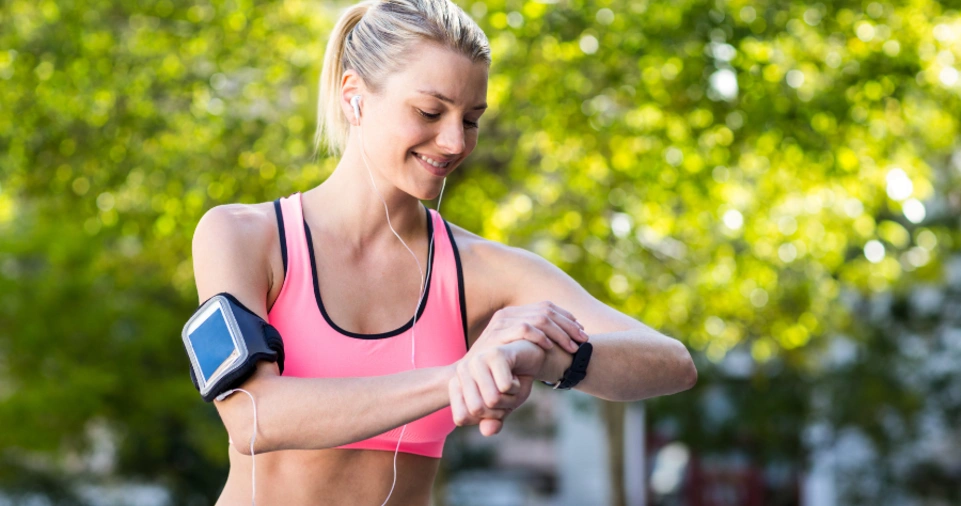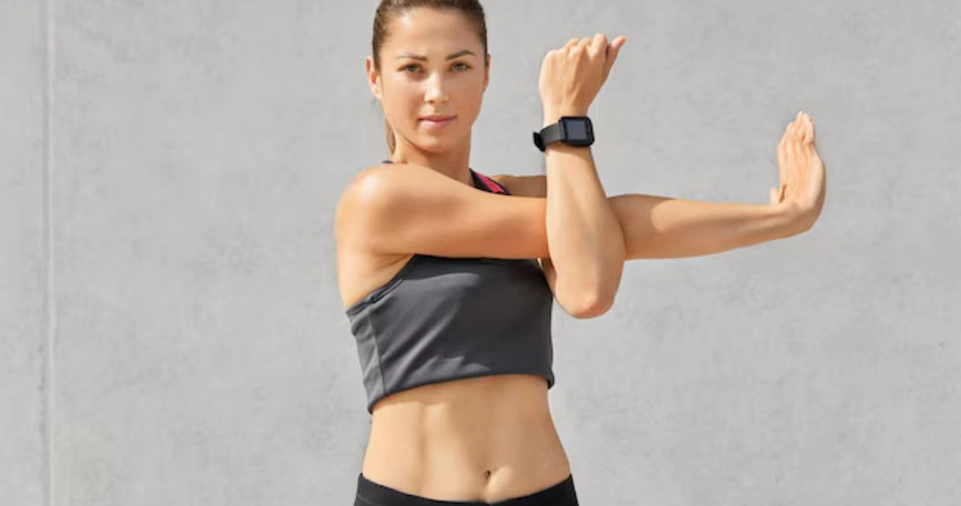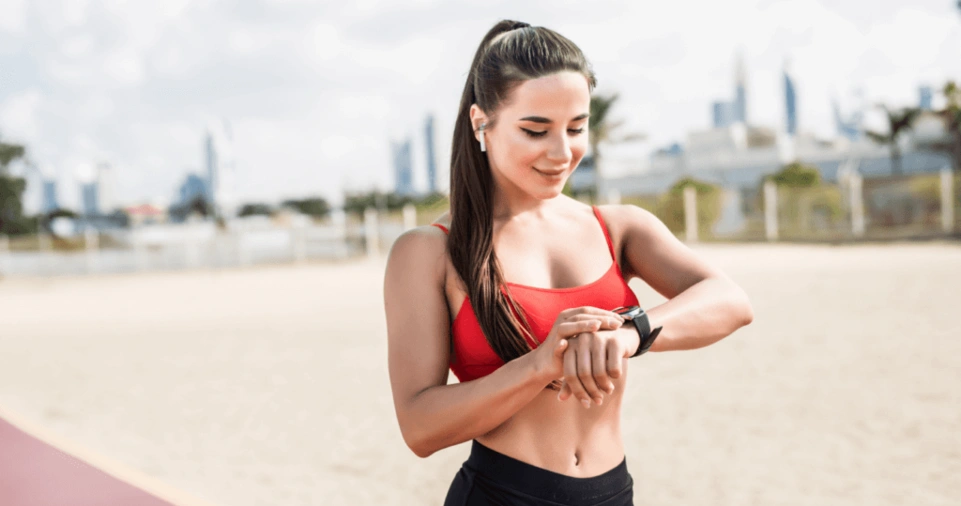In today’s fast-paced world, staying on top of your fitness goals can feel like a challenge. Luckily, wearable technology has revolutionized the way we approach health and fitness.
From smartwatches to fitness trackers, these devices make monitoring your progress easier and more motivating than ever before.
Let’s dive into how wearable tech can help you achieve your fitness aspirations and transform your lifestyle.
What Is Wearable Tech?
Wearable technology refers to smart electronic devices worn on the body that collect and analyze data in real-time.
These gadgets, such as fitness trackers, smartwatches, and even smart rings, are equipped with sensors that monitor various aspects of your health and activity.
Over the years, these devices have become more advanced, offering users comprehensive insights into their well-being.
Popular Types of Wearable Devices:
| Device Type | Features | Examples |
|---|---|---|
| Fitness Trackers | Track steps, heart rate, sleep, and calories burned | Fitbit, Xiaomi Mi Band |
| Smartwatches | Fitness tracking, notifications, GPS, and apps | Apple Watch, Garmin Fenix |
| Smart Rings | Sleep and activity tracking, heart rate monitoring | Oura Ring, Motiv Ring |
| Wearable Bands | Muscle stimulation, posture correction, hydration alerts | Whoop, Upright Go |
Why Use Wearable Tech for Fitness?
Wearable tech offers a personalized and data-driven approach to fitness.
Here are some reasons why it’s a game-changer:
- Real-Time Feedback: Monitor your heart rate, steps, and calorie burn instantly, helping you make adjustments as needed during workouts.
- Goal Setting and Motivation: Set achievable targets and track progress over time, celebrating small wins along the way.
- Accountability: Receive reminders to stay active, drink water, or stand up, ensuring you don’t fall behind on your health journey.
- Comprehensive Insights: Analyze sleep patterns, stress levels, and recovery metrics to optimize your physical and mental well-being.
- Community and Gamification: Join challenges, compete with friends, or earn badges to make fitness fun and engaging.
How to Choose the Right Wearable for Your Needs

Before purchasing a wearable, it’s essential to consider your fitness goals and preferences.
With so many options available, choosing the right one can feel overwhelming.
Here’s a quick guide to simplify your decision-making process:
Key Features to Look For:
| Fitness Goal | Recommended Features |
|---|---|
| Weight Loss | Calorie tracking, activity monitoring |
| Improved Cardio Fitness | Heart rate monitoring, GPS for running/cycling |
| Better Sleep | Sleep tracking, stress management features |
| General Wellness | Steps tracking, hydration reminders |
| Strength Training | Muscle activation sensors, form correction tools |
Practical Tip:
If you’re a beginner, start with a simple fitness tracker that covers basic metrics like steps and heart rate.
For advanced users or athletes, a smartwatch with multi-sport tracking, detailed analytics, and GPS might be a better choice.
Always consider battery life, compatibility with your devices, and the comfort of wearing it all day.
ALSO READ: How to Stay Active While Working from Home
How to Use Wearable Tech Effectively
To get the most out of your wearable tech, follow these steps:
- Set Clear Goals:
- Decide what you want to achieve, such as running a 5K, losing weight, or improving your sleep quality. Break these goals into smaller milestones.
- Sync with Fitness Apps:
- Connect your device to apps like MyFitnessPal, Strava, or Apple Health for a holistic view of your progress. Many apps also provide personalized recommendations based on your data.
- Leverage Data Insights:
- Use metrics like heart rate zones, sleep quality scores, and activity trends to make informed decisions. For example, train in your optimal heart rate zone to maximize fat burn or endurance.
- Stay Consistent:
- Wear your device daily, even on rest days, to ensure you’re capturing all relevant data. Pay attention to notifications and reminders to stay active.
- Update Goals Regularly:
- As you progress, set new milestones to keep the momentum going. Adjust your fitness plans based on insights, such as increasing workout intensity or improving recovery time.
- Engage in Social Features:
- Many wearables allow you to connect with friends or join online fitness communities. Use these features to stay motivated and share your achievements.
Real-Life Success Stories

Case Study: From Couch to 5K
Sarah, a 32-year-old accountant, used a Fitbit Charge to transition from a sedentary lifestyle to running her first 5K.
By tracking her daily steps and gradually increasing her activity level, Sarah stayed motivated and achieved her goal within six months.
The device’s reminders and heart rate monitoring helped her maintain consistency and avoid overtraining.
Case Study: Building Strength with Wearables
John, a 40-year-old fitness enthusiast, incorporated a Whoop band into his strength training routine.
The device provided detailed recovery insights, helping him optimize rest days and avoid injuries.
Over a year, John increased his deadlift by 20% while reducing workout-related fatigue.
Analogy:
Think of your wearable tech as your fitness coach.
It’s always there, offering guidance, encouragement, and a nudge in the right direction when needed. Unlike a traditional coach, it’s available 24/7 and adapts to your schedule.
Common Mistakes to Avoid
- Ignoring the Data: Regularly review your progress and adjust your routines based on the insights provided.
- Over-Reliance on Technology: While wearable tech is helpful, remember to combine it with mindful practices, like listening to your body and prioritizing rest.
- Setting Unrealistic Goals: Start small and build up gradually to avoid burnout or injury. For example, don’t aim for 20,000 steps a day if you’ve been averaging 5,000.
- Neglecting Updates and Maintenance: Keep your device’s software updated to ensure accuracy and access to the latest features.
Benefits of Tracking Fitness Goals with Wearables
| Benefit | Explanation |
|---|---|
| Improved Awareness | Understand how daily activities impact health |
| Increased Motivation | Gamify your goals with badges and challenges |
| Better Recovery | Use insights to optimize rest and recovery |
| Holistic Health View | Track multiple metrics, including stress levels |
| Personalized Feedback | Tailor your fitness plans based on real-time data |
SEO and Accessibility Tips
- Internal Link Suggestion: Check out our guide on Top Fitness Apps to Boost Your Routine.
- External Link Suggestion: For more on fitness trackers, visit Wearable.com.
- Meta Description: Discover how wearable tech can help you track and achieve your fitness goals with ease. Learn tips, benefits, and real-life success stories to get started today!
- Headers and Readability: Use concise headings and bullet points to make the article scannable. Ensure accessible language for readers of all fitness levels.
ALSO READ: How to Use Smart Home Devices to Increase Energy Efficiency
Conclusion
Wearable tech has made fitness tracking accessible, engaging, and highly effective.
Whether you’re a beginner or a seasoned athlete, there’s a device out there to help you smash your goals.
These devices not only monitor your progress but also inspire and guide you to live a healthier, more active life.
By choosing the right wearable, setting clear goals, and leveraging the data provided, you can transform your fitness journey one step at a time.







